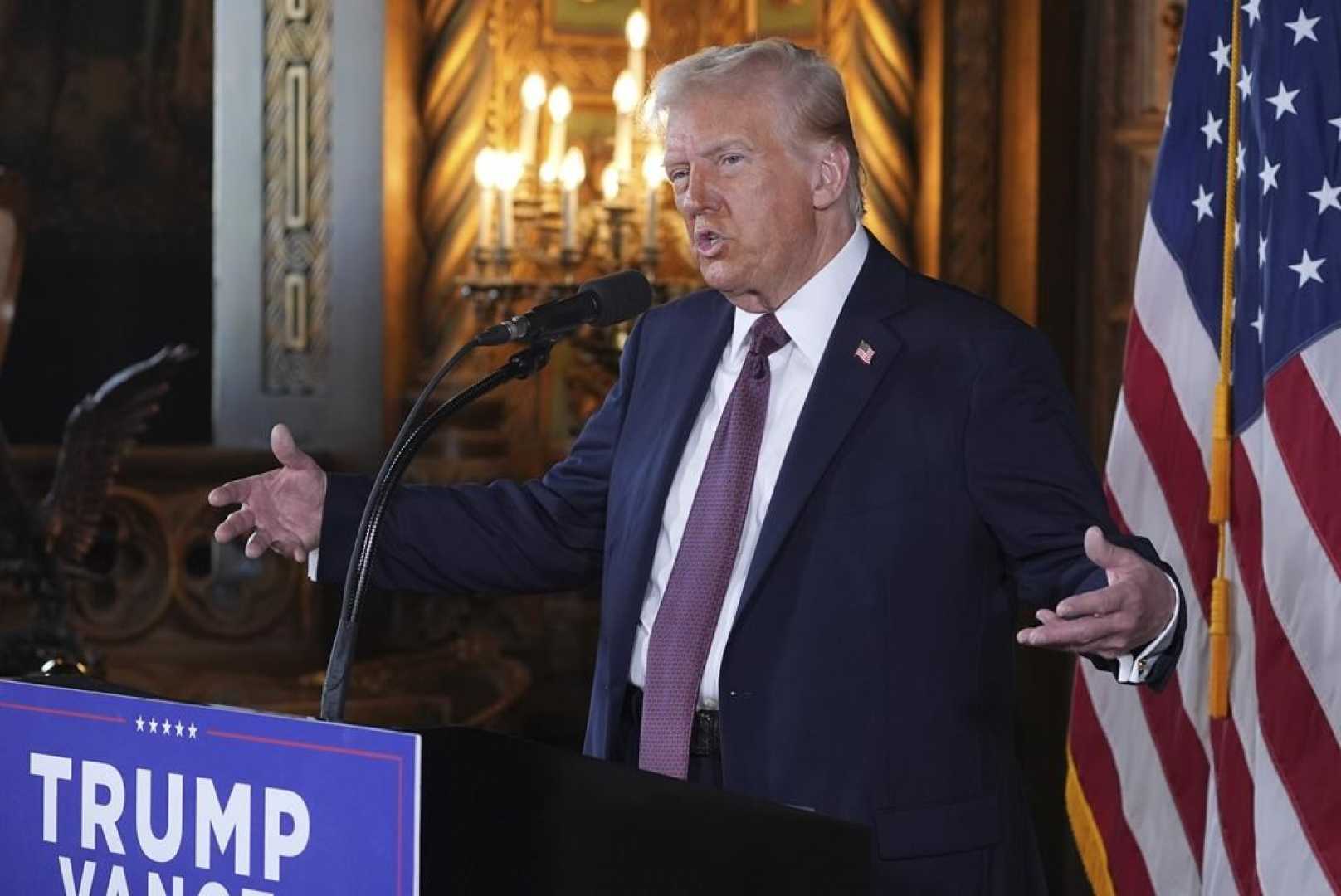Politics
Trump Calls for NATO Allies to Double Defense Spending to 5% of GDP

President-elect Donald Trump called for NATO member countries to double their defense spending to 5% of their Gross Domestic Product (GDP) during a press conference at his Mar-a-Lago estate in Florida on Tuesday. Trump criticized allies for “taking advantage” of the U.S. and emphasized that they “could all afford” the increased contributions.
Trump reiterated his stance from a February campaign event, where he suggested that the U.S. would not protect NATO members who failed to meet their financial obligations. “I said, ‘We’re not gonna protect you. You’re not paying the bills,'” Trump recounted, adding that he had faced criticism for the remarks but stood by them. The U.S. currently contributes 3.4% of its GDP to defense, while Poland leads NATO members with 4.1%.
In 2014, NATO members pledged to spend at least 2% of their GDP on defense following Russia‘s annexation of Crimea. However, most countries fell short of this target until Russia’s full-scale invasion of Ukraine in 2022 spurred increased spending. By 2024, all non-U.S. NATO allies met the 2% target on average for the first time, with 23 of 32 members meeting or exceeding the benchmark.
NATO Secretary General Mark Rutte echoed Trump’s call for higher defense spending in a December speech, warning that allies would face a “much, much higher price” if they failed to invest in preventing conflict. Rutte’s remarks were seen as a preemptive response to Trump’s anticipated demands.
Trump’s comments have raised concerns among European leaders, particularly in the UK, where Prime Minister Keir Starmer faces pressure to increase defense spending beyond the current 2% target. Trump also dismissed the possibility of Ukraine joining NATO in the near future, aligning with Russian President Vladimir Putin‘s opposition to the move.
The president-elect’s remarks underscore the challenges facing NATO as it navigates rising geopolitical tensions, including Russia’s war in Ukraine and China’s growing influence. Trump’s demands for increased defense spending could strain relations with allies, particularly if they are unable or unwilling to meet the new target.












